Whether you’re just starting piano lessons for the very first time, or are returning to the piano after a years-long hiatus, congratulations! You’re setting down a path that can take you places you’ve never thought possible!
You may have dreams of one day performing on stage, at home for friends and family, in competitions, auditioning into a conservatory or a university school of music, or you may just be seeking the special heartwarming effect of mental, physical, social, and spiritual fulfillment that the piano has to offer.
Either way, all that stands between you and your musical dreams is the less lofty part of the equation — the hours of practice, dedication, and, at times, difficult work of learning to play what is sometimes referred to as the King of Instruments: the piano.
All this hard work standing between you and your musical goals can sometimes feel like an impenetrable mountain, but have no fear! Your piano teacher is your mountain guide and, like Hannibal crossing the Alps, they can lead you places you never thought possible.
Of course, the key question most new piano students have is “How quickly can I learn?”. To which most piano teachers will answer “This is up to you!”, and that’s the truth!
As a music degree-holding pianist, I’ve spent 15 years as a student in formal piano lessons with seven different main piano instructors and countless other minor instructors over the years.
I’ve also taught piano lessons professionally for over three years now, teaching a wide and diverse range of students from children all the way up to seniors.
I’ve seen students make breath-taking progress in relatively short amounts of time, and I’ve also seen countless situations of unnecessarily inefficient growth that could have been greatly sped up through better teacher-student communication, organization, motivation, and proper engagement.
I firmly believe that sustainable quick improvement is possible for all students. The key to unraveling the secrets of the piano lies in getting the absolute most out of the short time you have each week with your piano teacher and translating that into focused, efficient practice between lessons
Setting (Realistic) Expectations
Whether you’re starting lessons for the first time, returning after a hiatus to a new teacher, or hoping to breathe new life into lessons that you feel have become somewhat stagnant, communicating your expectations to your teacher openly and honestly is always in your best interest as a student.
Explain Your Musical Background
What role has music played in your life thus far? Do you play any other instruments or sing? Are there other musical people close to you in your personal life? What kinds of music do you connect with the most? Knowing your personal musical background in detail helps your piano teacher to set the clearest, best path forward for you.
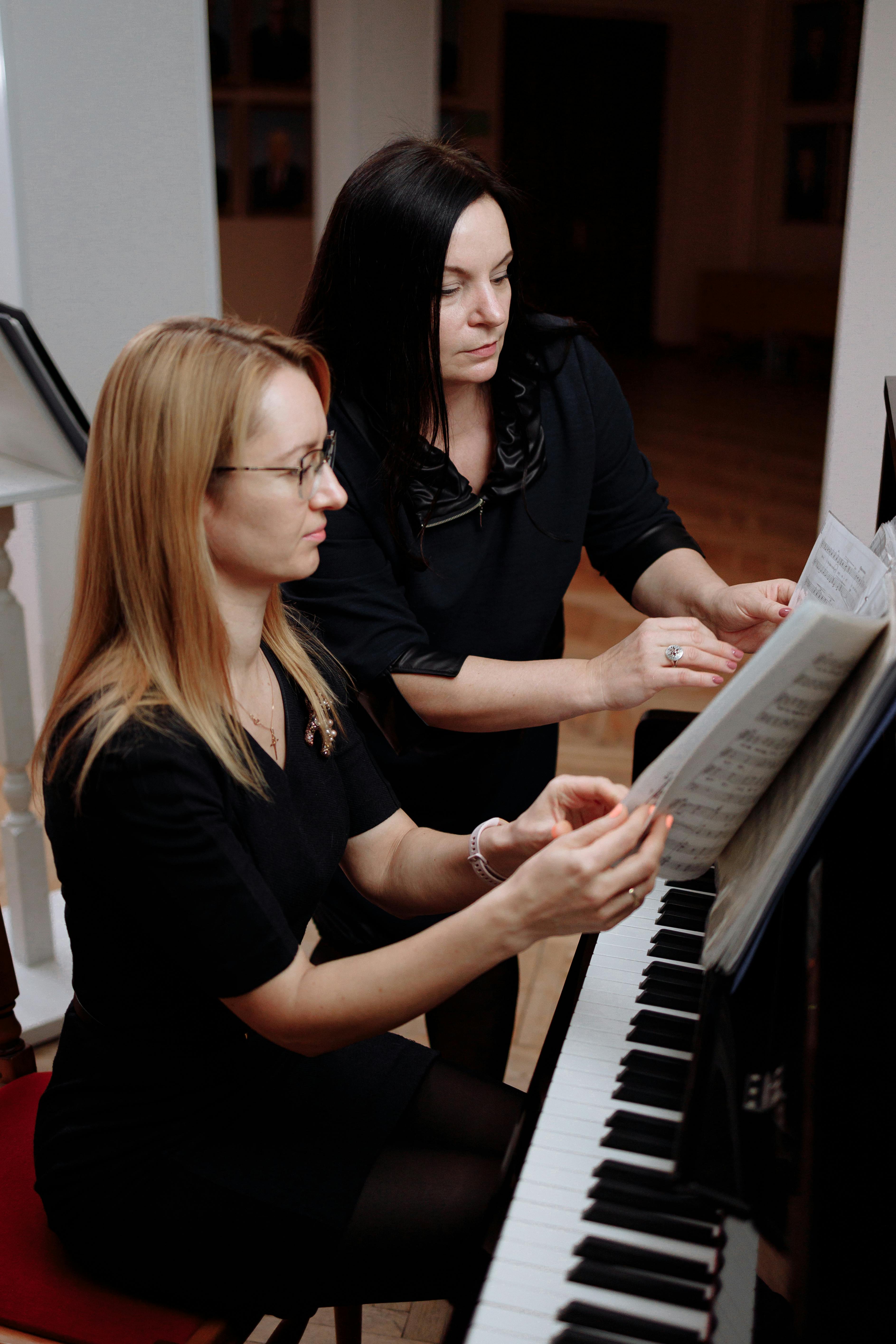
Explain What You Hope to Get Out of Learning Music and Specifically the Piano
Are you hoping to learn the skills to play specific songs? Are you interested in songwriting or composition? Are you looking to join a band or ensemble and play collaboratively with other people? Are you just looking to start down a musical path and see where it can take you? Making sure your piano teacher has a good idea of your musical aspirations will allow them to best tailor your piano lessons in support of your goals. If your interests and goals shift during your time with your teacher, keep your piano teacher updated!
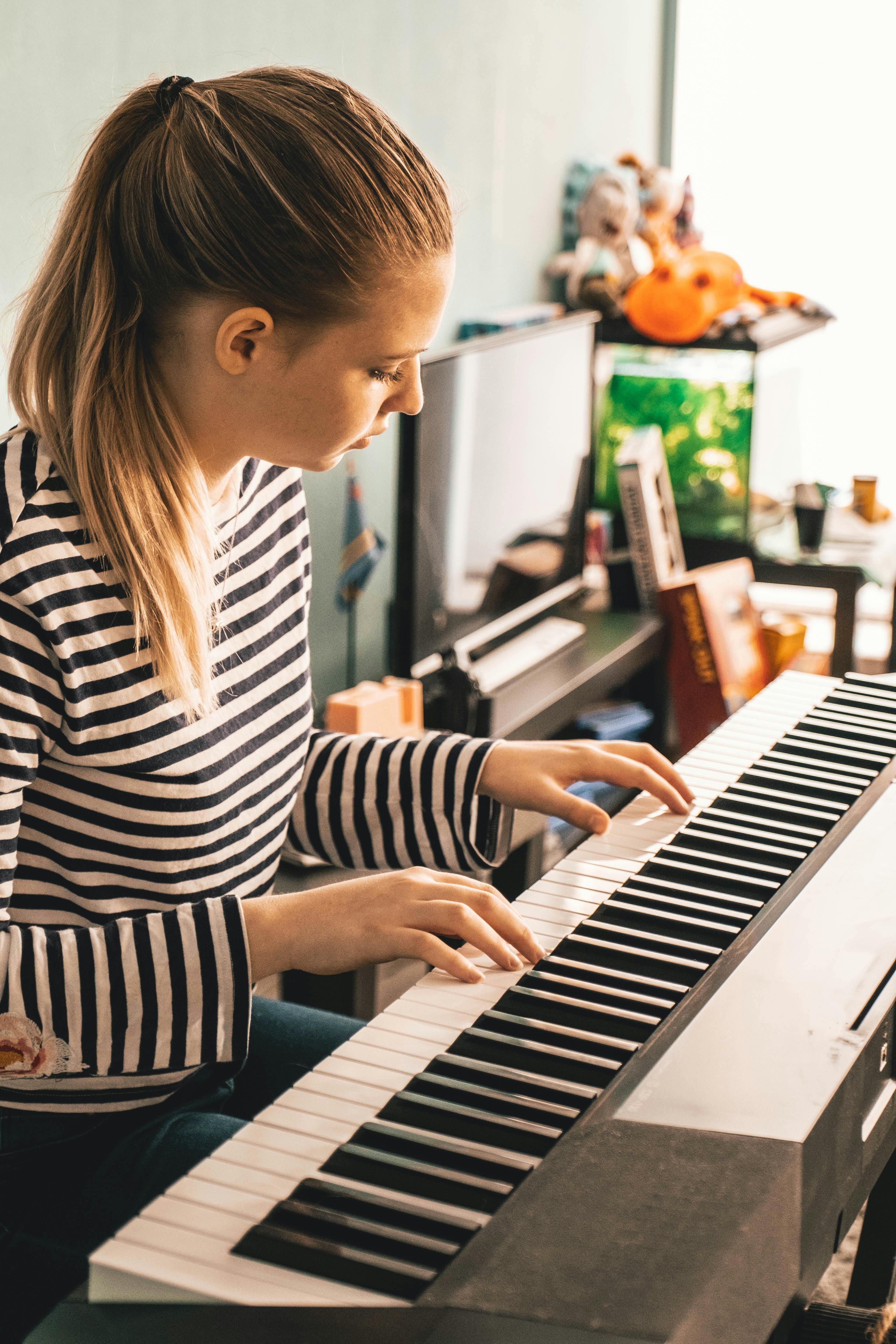
Explain Your Optimal Learning Styles
Are you a visual, auditory, or kinesthetic learner? Or perhaps a blend of all three? Do you generally learn best in a highly structured way or in a more open-ended free sort of way? Do you have any physical or mental handicaps you’re comfortable sharing with your piano teacher? An experienced teacher will likely have worked with students with a wide range of different learning styles and disabilities and have developed many strategies for adapting their teaching methods to best suit you!
Are Your Expectations Realistic?
A very common trap new piano students fall into is setting unrealistic time frames for achieving their goals, then grading their progress against that unrealistic time frame. This typically just leads to unnecessary frustration and self-doubt. These inaccurate time frames often arise from the student not yet having a solid understanding of all the skills that they need to develop to reach their specific goals. Have patience and trust that your own hard work and dedication will bring you results in due time.
The Student-Mentor Relationship
Developing a healthy, productive working relationship between student and teacher is vital towards making consistent speedy progress on the piano. Like any other type of relationship, the student-mentor relationship is built upon pillars of trust, honesty, and mutual respect. Building a great student-mentor relationship will lead to more engaging lessons, faster progress, and a much more rounded and individualized learning experience. Here are the key aspects to build a strong, productive student-mentor relationship with your teacher:
Consistent Punctuality and Preparedness to Learn
Showing up on time and with the proper materials (books, writing utensils, practice journal, etc.) consistently each week is a major signal of respect for your teacher’s time and shows the teacher that you are dedicated to getting the most out of your lessons, which will inspire more passionate and focused teaching from your instructor. This is a two-way street as well — you should also expect your teacher to consistently be on time for the lesson and be prepared to teach.

Familiarize Yourself With and Uphold Your Teacher’s Studio Policies
Most piano teachers will have an established set of policies for their students to follow. These policies have been crafted by the piano teacher to most effectively manage their teaching business and ensure fairness in that every one of their students is being held to the same standards. In particular, pay close attention to the cancellation/lesson makeup and payment policies. Many piano teachers may be teaching between 10-60 students a week and these policies are essential for the teacher to effectively manage their own livelihoods along with making sure each student is treated fairly and can get the most out of their valuable lesson times. Being familiar with studio policies is a major sign of respect towards your teacher and will be greatly appreciated and lead to better lessons. Additionally, always be prompt in paying your teacher on time. A teacher having to “hunt down” their lesson payments from you each month/semester is a surefire way to add an uncomfortable and unhelpful layer of tension in the student-mentor relationship.
Honesty
Did you not have time to practice much since your last lesson? Be honest and let your teacher know right at the beginning of the lesson. There’s plenty of other productive things your teacher can focus on during that week’s lesson such as music theory, technique work, or ear training. Letting your teacher know right away will allow them to quickly change their lesson plan and prevent inefficient use of your lesson time. Always be upfront about your time spent practicing, what you were practicing, and anything else concerning your lessons. This both builds mutual respect as well as gives your teacher the information they need to best move you forward musically!
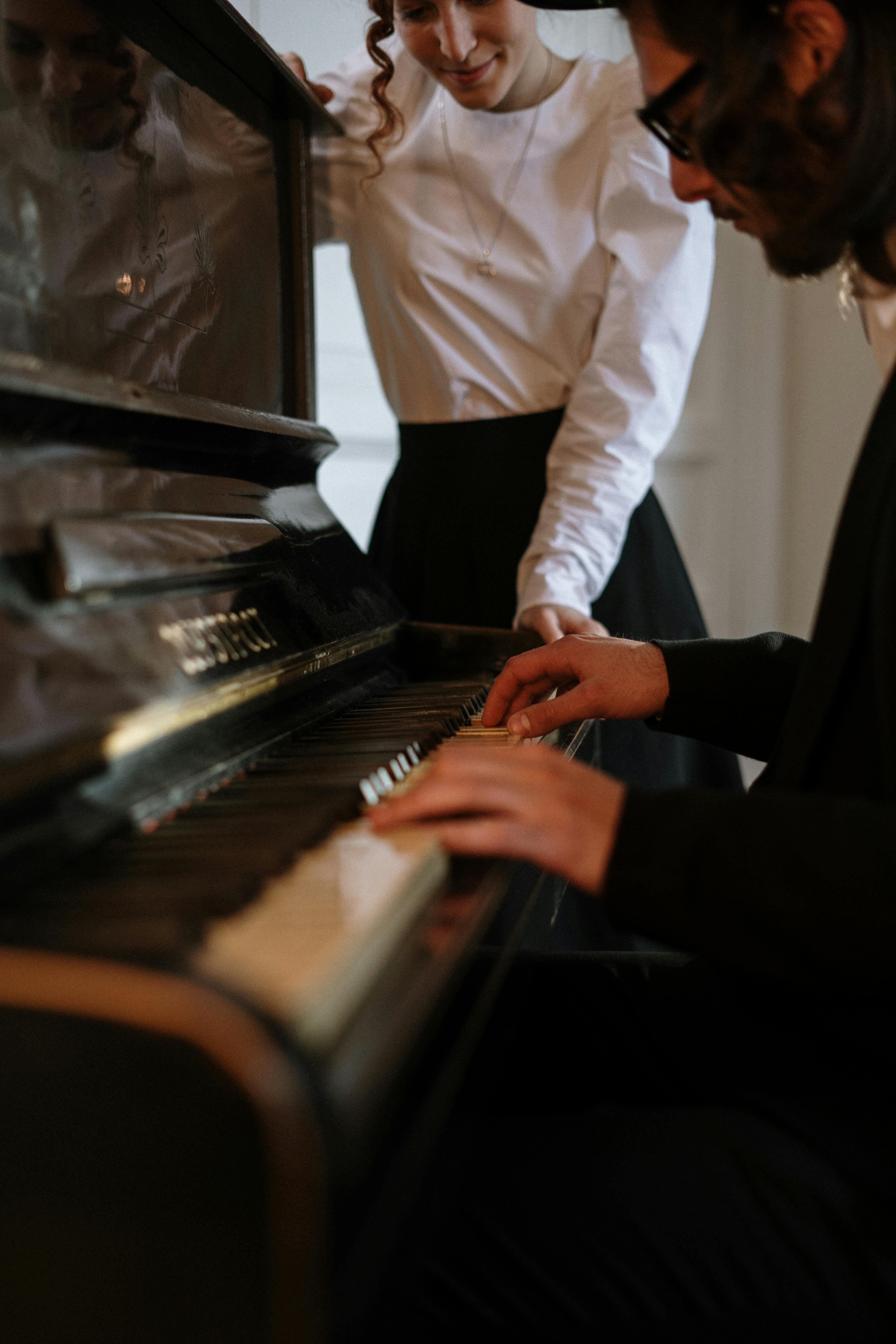
Voice your Hesitations and Concerns
Are you worried you’re not progressing fast enough? Does your teacher make you very nervous to play in front of them? Do you feel like you’re not covering some of the topics you really want to touch on? Do you feel like there’s more your teacher can be doing to help you get more out of your lessons? Don’t hesitate to let your teacher know! At the end of the day, we work for you and we’re very invested in making sure our students are maintaining a positive outlook towards their musical studies and if there are issues the student is having during their lesson time that impacts their education, we want to know about it so we can both have productive enjoyable lessons!
Be Respectful of the Next Student’s Time
Most likely, your piano teacher will have a student before and/or after your lesson time. Make sure you aren’t interrupting the last few minutes of the prior student’s lesson time when you arrive and allow your teacher to quickly wrap up your lesson when your time is over. Going a few minutes over your lesson time every now and then is generally not a big deal — any more than that can lead to serious inconveniences if your teacher has a block of students after you.
During the Lesson
Have a Mental Roadmap of How You’d Like Your Lesson to Go
Having a solid (but flexible!) idea of what you would like to cover going into each lesson will go a long way in staying focused and on track. Your teacher will also have a mental roadmap of what they expect to cover during your lesson. When in doubt, defer to your teacher’s plan as you can trust they have your best interests in mind. Of course, be prepared to run out of time before you manage to cover everything, it’s easy to underestimate how long it may take to cover certain concepts! If you do notice a consistent pattern of running out of time before you were able to cover most of what you were hoping to cover, it may be time to consider taking longer lessons. Pacing your lessons is another two-way street, having a mutual understanding that you’d like to keep your lessons as focused and productive as possible and allowing both teacher and student to help keep things moving will go a far way to squeezing the most value out of your lesson time!
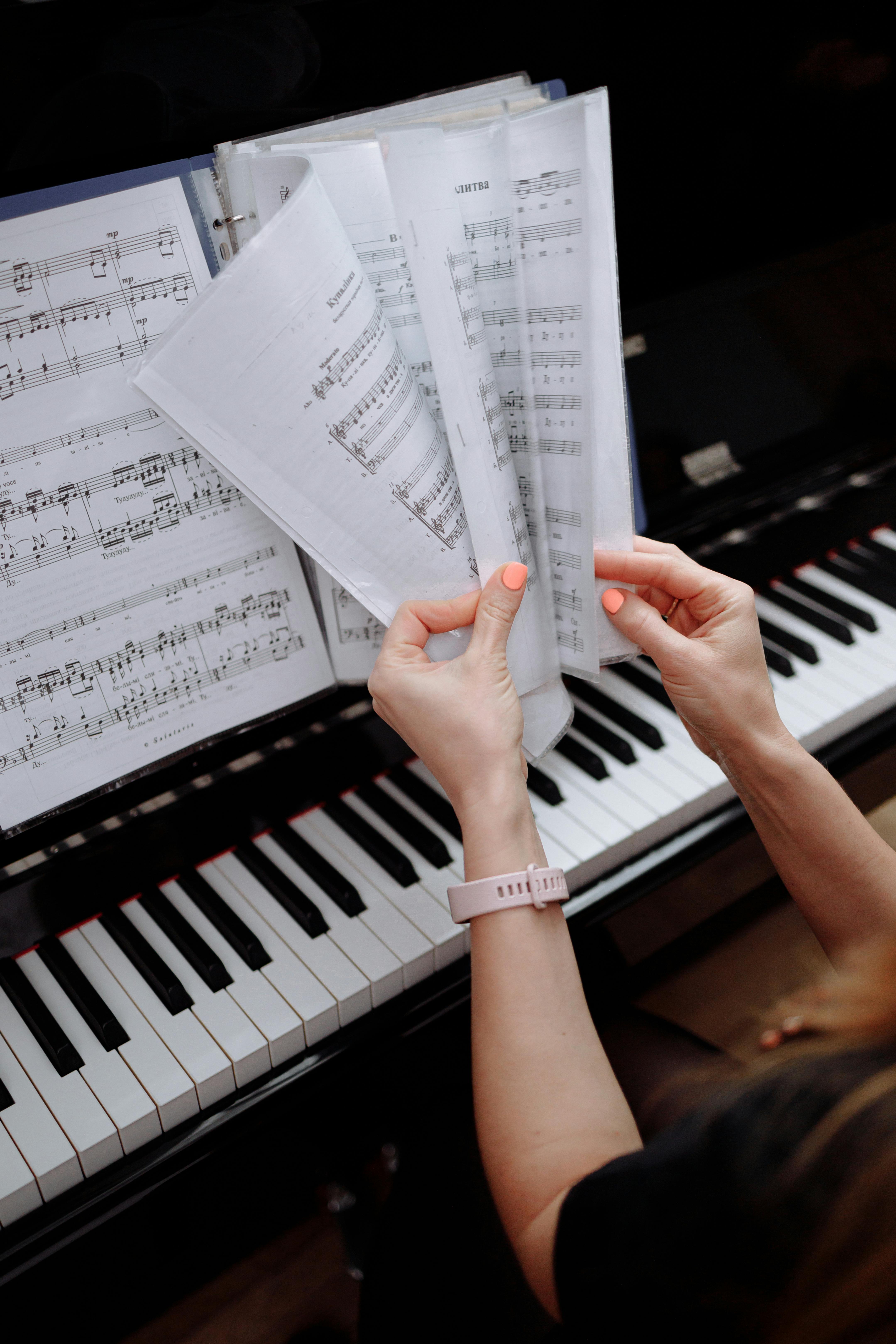
Starting the Lesson
It’s normal for the first three minutes or so of a lesson to be a time for friendly greetings, asking how things are going for you and how your weekly practice time went. This time is valuable for maintaining a healthy, productive teaching relationship as well as giving you, the student, a few minutes to settle into the learning mindset and potentially calm your own nerves. However, it’s important not to allow this opening chatter to cut too much into your valuable lesson time, feel free to quickly lead the conversation into questions you had on last week’s material.
Ask Many (Focused) Questions
Many aspects of music and piano playing are pretty abstract and difficult to put into words, of which your teacher is acutely aware. Many times, concepts need to be explained in multiple different ways and demonstrated multiple times before it makes sense to you as the student. Never be afraid to say you don’t understand something! Many things about playing piano may feel totally natural and make perfect sense to your experienced teacher, but they are brand new to you and take a long time to become second nature to you, so never feel discouraged when concepts take time and multiple demonstrations to sink in! However, try to make your questions as focused as possible to increase your overall learning. “What influences did classical music have on Pink Floyd?” is definitely a fascinating question, but its open-ended nature could end up leading to a fifteen-minute conversation that, while interesting, is probably not the best use of your lesson time and might just make a better Google search.
Listen to Your Teacher
This may seem like a no-brainer, but your teacher is there to be listened to. Trust that what they have to say is valuable and always intended with your best interests in mind. It’s easy to get distracted by the awesomeness of the piano in front of you but refrain from idly playing notes while your teacher is trying to tell you something. If they are demonstrating something on the piano for you and ask you to specifically watch for something, pay close attention. If you didn’t understand exactly what they were trying to convey, let them know immediately so they can attempt a different way of explaining.
Annotate Your Music/Take Notes
Oftentimes your teacher might specifically ask you to write some notes, fingerings, highlight certain things, etc. into your music. Always do so when asked. However, it is equally important to be taking notes on what your teacher is saying even when they don’t specifically ask you to write it down. Have a notebook at the ready during your lesson to write down helpful pieces of advice and longer ideas that don’t belong on your sheet music. Reviewing these notes later on during your practice sessions can be invaluable — you may only remember 10% of what was spoken during your lesson without notes, but with good notes, you’ll be able to retain much more and less will need to be repeated!
Playing for Your Teacher
A common impediment to learning is the feeling of nervousness a student might have for playing in front of their teacher. If this is a major issue for you, speak openly with your teacher about it. Often, teachers will have a lot of helpful advice on facing stage fright/teacher fright as we’ve likely all experienced it at certain times. This nervousness is definitely able to be overcome by developing a great student-mentor relationship as well as simple things like the teacher sitting further away from you while you play or discussing beforehand what section of the piece you are most nervous about playing. At the end of the day, your teacher is not trying to make you nervous to play in front of them. In fact, we’d prefer you feel as relaxed as possible so you are playing as well as you can in the moment!
Practice Questions
One of the best ways to jump-start your lessons into productivity is to write down specific questions on the material you worked on during your practice time. Oftentimes, these questions will transition smoothly into exactly what the teacher wants to focus on for that week.
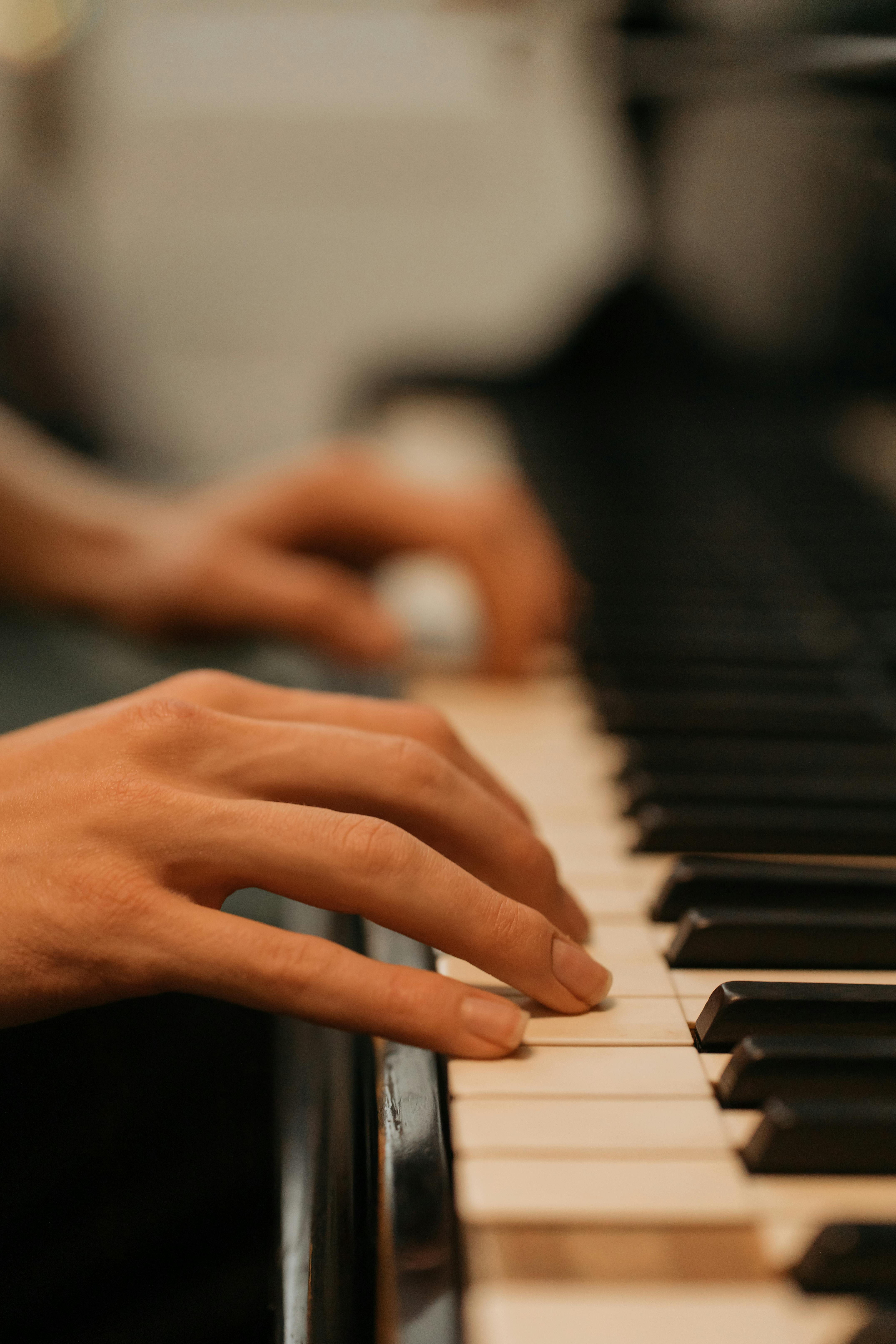
Learn to Productively Handle Criticism
Piano teachers can be notoriously blunt at times, but it’s all in the interest of quickly communicating mistakes/issues in your playing to you so you can immediately begin to work on them. This honest, direct criticism from your teacher is highly valuable to your musical growth. Learning to productively take this criticism into account will make you a better player much faster.
Ask Your Teacher to Set Time Aside for Specific Topics
Want to spend a portion of your lesson time each week learning a distinct topic like composition, music theory, ear training, or improvisation? Communicate this clearly with your piano teacher so they can structure your lessons to include a set block of time for working on these subjects and help integrate these subjects with your main learning.
End of Lesson Wrap-Up
What should I practice? How should I practice it? How long? Make sure you understand before you leave your lesson what your teacher would like you to practice and how (Right hand only? Hands together? What tempo?). If you feel you are struggling with certain aspects of a song (this arpeggio, or this trill, or this scale), ask your teacher what sorts of exercises they may have for you to get a better handle on that specific skill. Discuss with your teacher how long you should be aiming to practice for especially as you begin to progress in skill level. Ideally, the end of a lesson should feature a concluding wrap-up where your teacher lays out what they’d like you to do at home over the week and ask if you have any final questions.
Between Lessons
Practice, Practice, Practice
The most consistent part of every single musician’s journey is that it took many, many, many hours of practice to achieve their goals. However, the equation isn’t as simple as X amount of hours practicing equals Y amount of progress. In fact, the quality and efficiency of your practice sessions will make all the difference and determine your rate of progress. Think of practice like going to the gym: going one hour a day five times a week is great but the most important thing is what you are doing during each hour-long gym visit. Are you only doing dumbbell curls the whole time? Don’t expect your lower body to develop in that case. Similarly, an hour spent fully playing just one song over and over again on repeat is not going to be an efficient use of your time.
Learn How to Practice Music
As I mentioned, the efficiency and quality of your practice time is perhaps the single most important input towards your musical success. A fully focused twenty minutes spent on a trouble section of a song you’re learning will be of much more benefit than an hour spent playing the whole song, including the parts you’re already comfortable with, again on repeat. Spending long hours practicing inefficiently can lead to the feeling of a lack of progress despite putting in the time, which can be highly discouraging. But the issue almost certainly lies in how you’re using your time! Discuss with your teacher the best strategies for ensuring efficient practice. Early on while you’re still a beginner, you may require a more step-by-step explanation of what exactly to practice and how. Once you have more experience, you will be able to take charge of your practice sessions more for yourself!
Develop a Practice Routine That Works for You
Do you find it difficult to maintain your focus over an hour-long practice session? Divide your practice time up into separate blocks over the day to increase your focus and efficiency while covering many different skills. Perhaps you can do 30 minutes before work/school and 30 more minutes after dinnertime. Maybe three 20-minute practice sessions work best for you. Are there certain days of the week that you know you aren’t likely able to practice on? Plan for that. Some students operate best with detailed, written out practice schedules (develop these with the help of your teacher) and some are less regular with their practice times (2 hours one day, twenty minutes the next). Both strategies can prove effective depending on your learning style, but the most important factor is that you are indeed putting in the hours and spending your practice time in a focused, efficient manner.
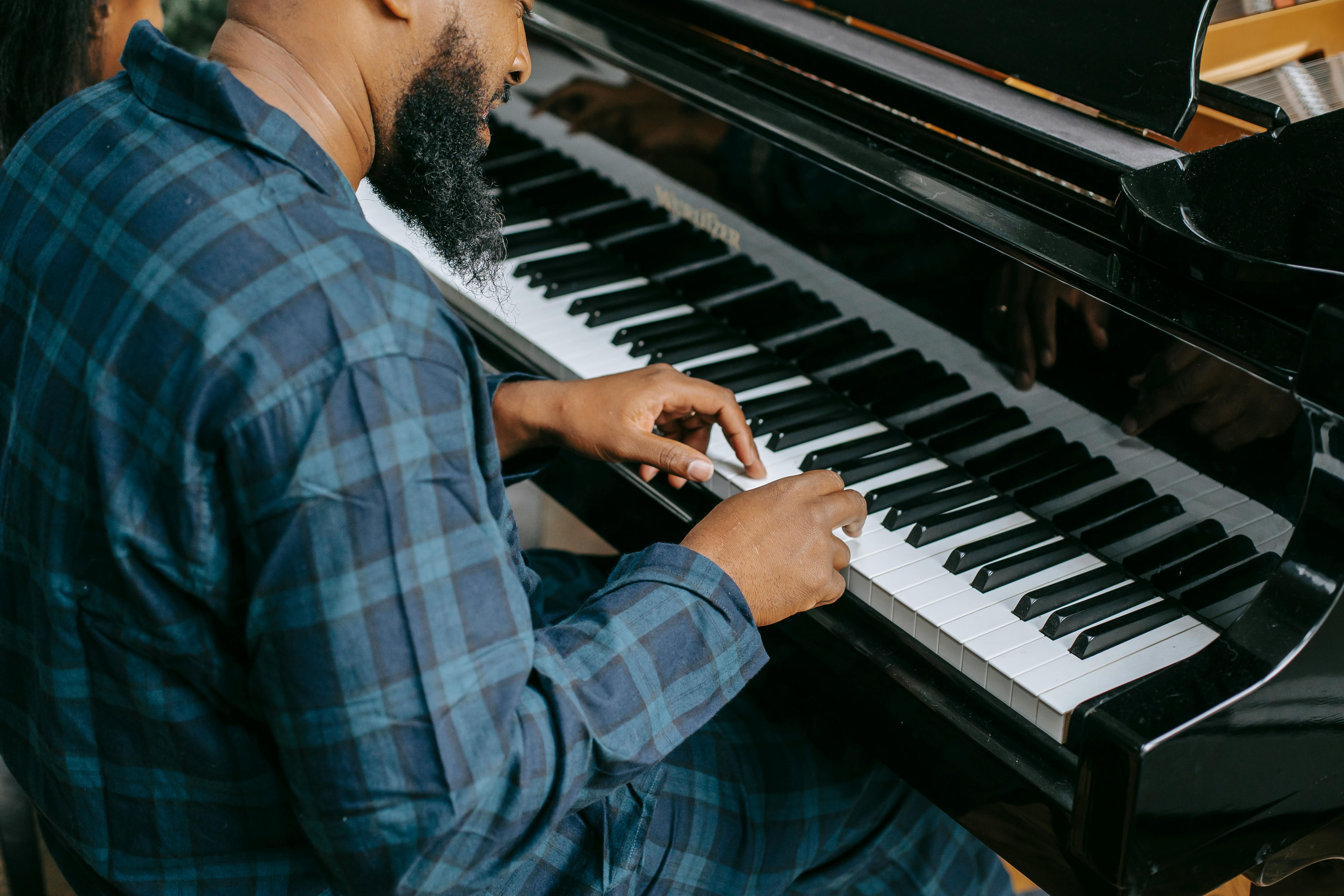
Learning how to practice efficiently can be, and is, a full book in and of itself, but the general principle is the Divide and Conquer method. Breaking down the music into its more simple components and spending the most time on the most difficult portions will reap fast results. Learning to identify the spots in a piece of music that are giving you the most trouble and how to break these sections down into smaller, easier to practice figures is at the core of efficient practice.
Getting the most out of your piano lessons is a skill in and of itself – and it’s one that you will improve upon the longer you’ve taken lessons!
My hope is that this quick guide will help speed up the learning process and take you where you want to go with piano and your musical education in a well-rounded, informed way.
Thanks very much for reading and I wish you good luck on your musical journey!

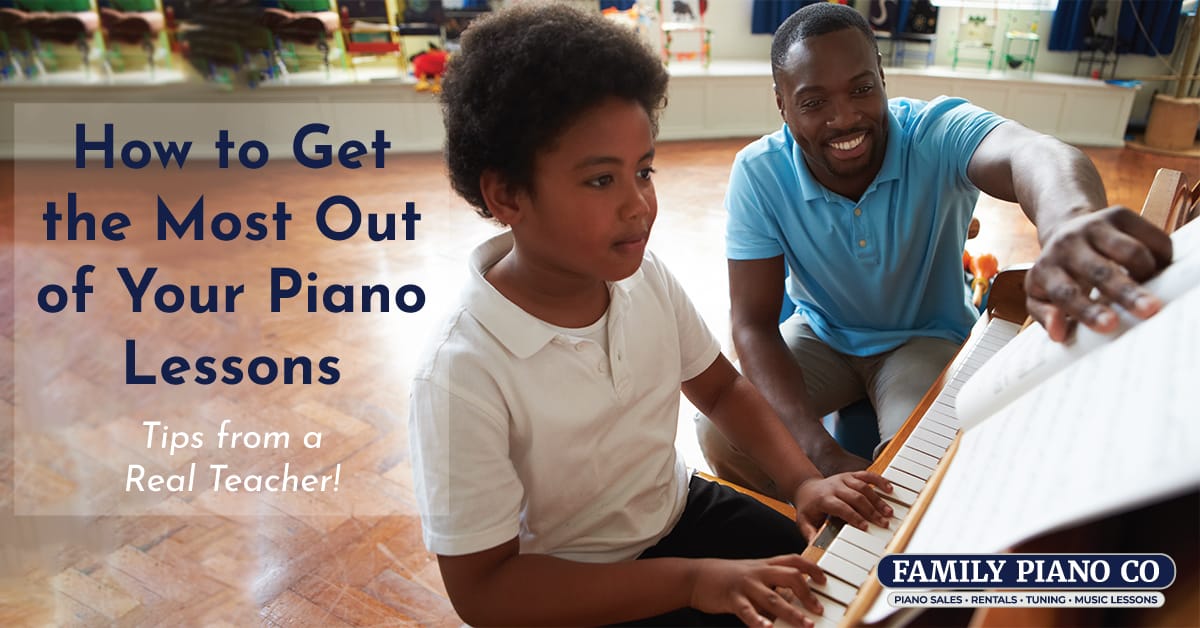
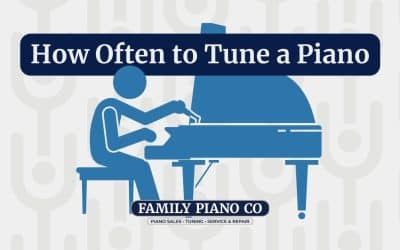
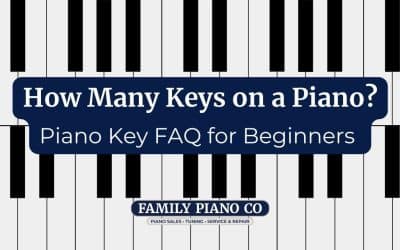

0 Comments